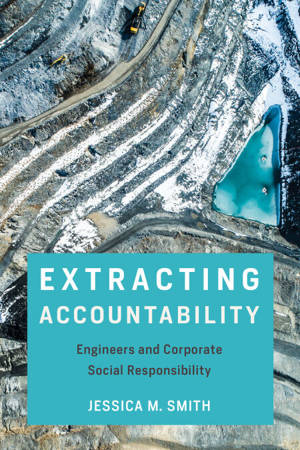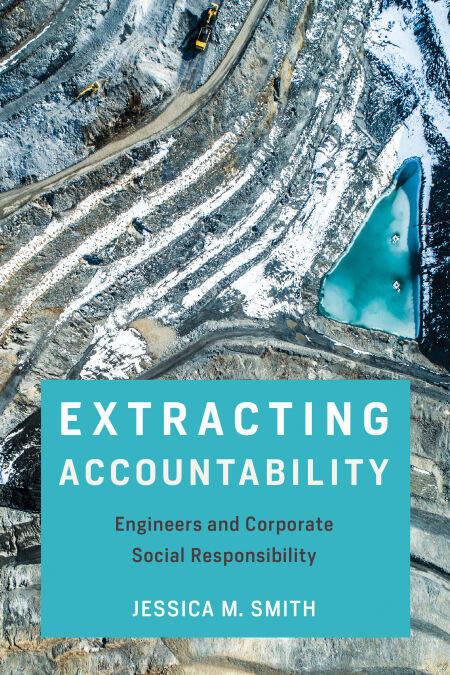
- Afhalen na 1 uur in een winkel met voorraad
- Gratis thuislevering in België vanaf € 30
- Ruim aanbod met 7 miljoen producten
- Afhalen na 1 uur in een winkel met voorraad
- Gratis thuislevering in België vanaf € 30
- Ruim aanbod met 7 miljoen producten
Zoeken
€ 64,07
+ 64 punten
Uitvoering
Omschrijving
How engineers in the mining and oil and gas industries attempt to reconcile competing domains of public accountability.
The growing movement toward corporate social responsibility (CSR) urges corporations to promote the well-being of people and the planet rather than the sole pursuit of profit. In Extracting Accountability, Jessica Smith investigates how the public accountability of corporations emerges from the everyday practices of the engineers who work for them. Focusing on engineers who view social responsibility as central to their profession, she finds the corporate context of their work prompts them to attempt to reconcile competing domains of accountability—to formal guidelines, standards, and policies; to professional ideals; to the public; and to themselves. Their efforts are complicated by the distributed agency they experience as corporate actors: they are not always authors of their actions and frequently act through others.
Drawing on extensive interviews, archival research, and fieldwork, Smith traces the ways that engineers in the mining and oil and gas industries accounted for their actions to multiple publics—from critics of their industry to their own friends and families. She shows how the social license to operate and an underlying pragmatism lead engineers to ask how resource production can be done responsibly rather than whether it should be done at all. She analyzes the liminality of engineering consultants, who experienced greater professional autonomy but often felt hamstrung when positioned as outsiders. Finally, she explores how critical participation in engineering education can nurture new accountabilities and chart more sustainable resource futures.
The growing movement toward corporate social responsibility (CSR) urges corporations to promote the well-being of people and the planet rather than the sole pursuit of profit. In Extracting Accountability, Jessica Smith investigates how the public accountability of corporations emerges from the everyday practices of the engineers who work for them. Focusing on engineers who view social responsibility as central to their profession, she finds the corporate context of their work prompts them to attempt to reconcile competing domains of accountability—to formal guidelines, standards, and policies; to professional ideals; to the public; and to themselves. Their efforts are complicated by the distributed agency they experience as corporate actors: they are not always authors of their actions and frequently act through others.
Drawing on extensive interviews, archival research, and fieldwork, Smith traces the ways that engineers in the mining and oil and gas industries accounted for their actions to multiple publics—from critics of their industry to their own friends and families. She shows how the social license to operate and an underlying pragmatism lead engineers to ask how resource production can be done responsibly rather than whether it should be done at all. She analyzes the liminality of engineering consultants, who experienced greater professional autonomy but often felt hamstrung when positioned as outsiders. Finally, she explores how critical participation in engineering education can nurture new accountabilities and chart more sustainable resource futures.
Specificaties
Betrokkenen
- Auteur(s):
- Uitgeverij:
Inhoud
- Aantal bladzijden:
- 328
- Taal:
- Engels
- Reeks:
Eigenschappen
- Productcode (EAN):
- 9780262362429
- Verschijningsdatum:
- 27/09/2021
- Uitvoering:
- E-book
- Beveiligd met:
- Adobe DRM
- Formaat:
- ePub

Alleen bij Standaard Boekhandel
+ 64 punten op je klantenkaart van Standaard Boekhandel
Beoordelingen
We publiceren alleen reviews die voldoen aan de voorwaarden voor reviews. Bekijk onze voorwaarden voor reviews.








